Teaching Playground Safety
It’s true that today’s playgrounds aren’t built like they used to be. Gone are most of the blacktop surfaces, as well as many of the tall, imposing metal jungle gyms and hard, plastic, animal swing that used to pose major impact hazards. Not gone, however, are all playground-related injuries and deaths. According to the Consumer Product Safety Commission (CPSC) approximately 170,100 children require emergency medical treatment and 17 children are killed each year as a result of playground injuries.
While it’s important to always supervise children, the fact is that’s a tall order. You can’t always be with them. It’s inevitable.
Sometimes kids will be playing without supervision. Therefore, it is important to teach them basic safety rules.
Since virtually all kids attend school, the classroom seems to be the most logical place for this education to take place. But teachers, day care owners and city parks and recreation officials should also take extra care to encourage parents to teach children the basics of playground safety.
Here are a few suggestions to help along the way-
Clothing
Before heading out to play, parents should make sure that each child is dressed appropriately. Even in warm weather, children should be wearing shoes and socks for outdoor play to avoid tripping, falling, and being cut.
Rachel Weintraub, a consumer advocate with Public Interest Research Group(PIRG), suggest that children not wear bicycle helmets, scarves, backpacks, hooded or drawstring clothing while playing at playgrounds, especially when on slides where strangulation is a danger if clothing or other items entrap them. Taking time to explain to children the dangers of certain types of clothing, or lack thereof, can be a very effective dose of preventative maintenance that will pay off in the long run.
Age Appropriate
The National Program for Playground Safety recommends that we should look for two distinct play areas: one for younger children (ages 2-5) and another for school-aged kids (5-12). Since kids have different developmental levels, it makes sense that they should also have equipment that fits their physical abilities.
Travis L. Teague, Ph.D, is a certified playground inspector for the state of North Carolina. He suggests that we teach parents to immediately look for signage that will help them distinguish areas that are appropriate for their children, in terms of age. The signs may also give important safety rules and notices that parents can go over with children before playing begins.
Even a piece of equipment as harmless as monkey bars can pose a hazard if used by a preschool-age child. According to Donna Thompson, Ph.D., Director of the National Program for Playground Safety,
“Kids sometimes fall from horizontal ladders (monkey bars). I’m not saying that it’s not a good piece of equipment; I’m just saying that for school-age kids, it’s fine, for them. So long as there is adequate surfacing beneath it. But it’s inappropriate for preschool children, because they don’t have the strength to hang from those bars safely. They can lose their grip and fall.”
According to Weintraub, 70-75 percent of playground injuries result from falls. It’s important, therefore, that children use the equipment as it was designed, and for their age group. Preschool children should be on lower level equipment, never taller than four feet, whereas school-age kids may choose equipment with a 6-foot height.
Being Aware
One of the important safety rules to teach children of all ages, is to be aware of their surroundings at all times. For instance, if they are crossing near the swing sets in order to jump rope with a friend, they should be aware that they’re passing near the swings, and keep clear of the path where they might get hit, either by the swing or flying feet of those swinging. An awareness of where they are at, and what they are doing at all times will go a long way toward preventing accidents.
“In the best playgrounds, there are areas for active play and quiet play. Quiet play should not be in the midst of active play,” advises Weintraub. ‘“Teach kids that if they no longer wish to play on the swings, for example, to move to a different location.”
Avoid Horseplay
There should never be pushing, shoving or horseplay on any piece of equipment. Children should take turns. If a child is afraid to go down a slide, or wants off a merry-go-round, or fast moving swing, they should be allowed to get down safely. Although the total elimination of horseplay at most any playground is next to impossible, teach children what inappropriate play is and encourage them to report it.
Safety Equipment Problems
Playgrounds should be properly surfaced according to ADA and other standards. If the surfacing is of the fill material sort, it should be at least 12 inches deep under each piece of equipment.
It’s important for adults and children to be on the lookout for areas where loose fill materials may have blown away or eroded. Many times, in areas such as around the swings or monkey bars, this material may have worn away.
Teach children to recognize problematic areas such as around the swings or monkey bars, this material may have worn away. Teach children to recognize problematic areas and report them as well. If this is the case, don’t allow children to play until it has been refilled.
When children are swinging, make sure the swings are spaced well enough apart, and those children don’t swing precariously into the path of other swing set users, or into the path of oncoming children. Although it would be nice if children wouldn't bale out from swings, the reality is that they often do, so the importance of fill material extending several feet beyond the swings in all directions is very important.
If you notice any equipment that appears unsafe, keep children off. Then report it immediately to the agency, park official, or individual responsible for the upkeep of the playground.
Follow Up
Teague suggest that after each play session, it’s a good idea to take a moment to ask the children you are supervising, "How did it go today? Did we follow the rules? Did we all stay safe?” Just having them offer a ‘thumbs up’ or ‘thumbs down’ response, as well as a brief discussion, can go a long way toward making them aware of the playground safety rules. That way, we can make it a part of our everyday play routine that keeps everyone safe.
As you hold these brief discussions with them and hold annual and semi-annual playground safety classes, you will find that, to a certain extent, kids will govern themselves making your supervising job a lot easier. Plus, it will make them feel more important as you entrust them to watch for these important elements. You may even try a rewards program to help give recognition to those children who adhere to these important safety rules.
Most importantly, in the long run, as a whole, children will be happier and safer.
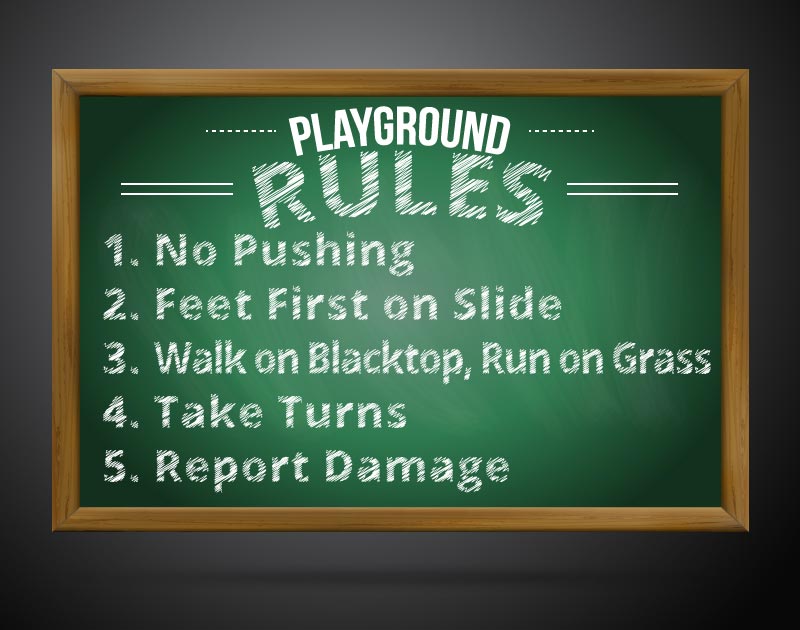
Teaching Helps Quick List
Teach children to:
- Play together cooperatively. This includes the old standby rules of taking turns, sharing equipment, and avoiding pushing and shoving, which can result in falls.
- Avoid rock throwing, hitting and other aggressive behaviors.
- Be on the lookout, at all times, for other children playing and avoid walking into the path of the equipment they are playing on.
- If you're playing quietly, get in an area far away from fast-moving equipment.
- Use equipment as it’s meant to be used. For instance, don't climb up a slide while others are sliding down.
- Keep your shoes on.
- Follow all the rules.
- If you see the unsafe situation, tell the teacher, parent or playground supervisor.
Supervisors remember to:
- Stay attentive at all times.
- Carry a first-aid kit with you.
- If you must attend to an injured child, have another adult watch the play group.
- Allow children to play on age-appropriate equipment only.
- Keep an eye out for loose fill material that has worn away.
- Report any playground equipment problems to the responsible agent.

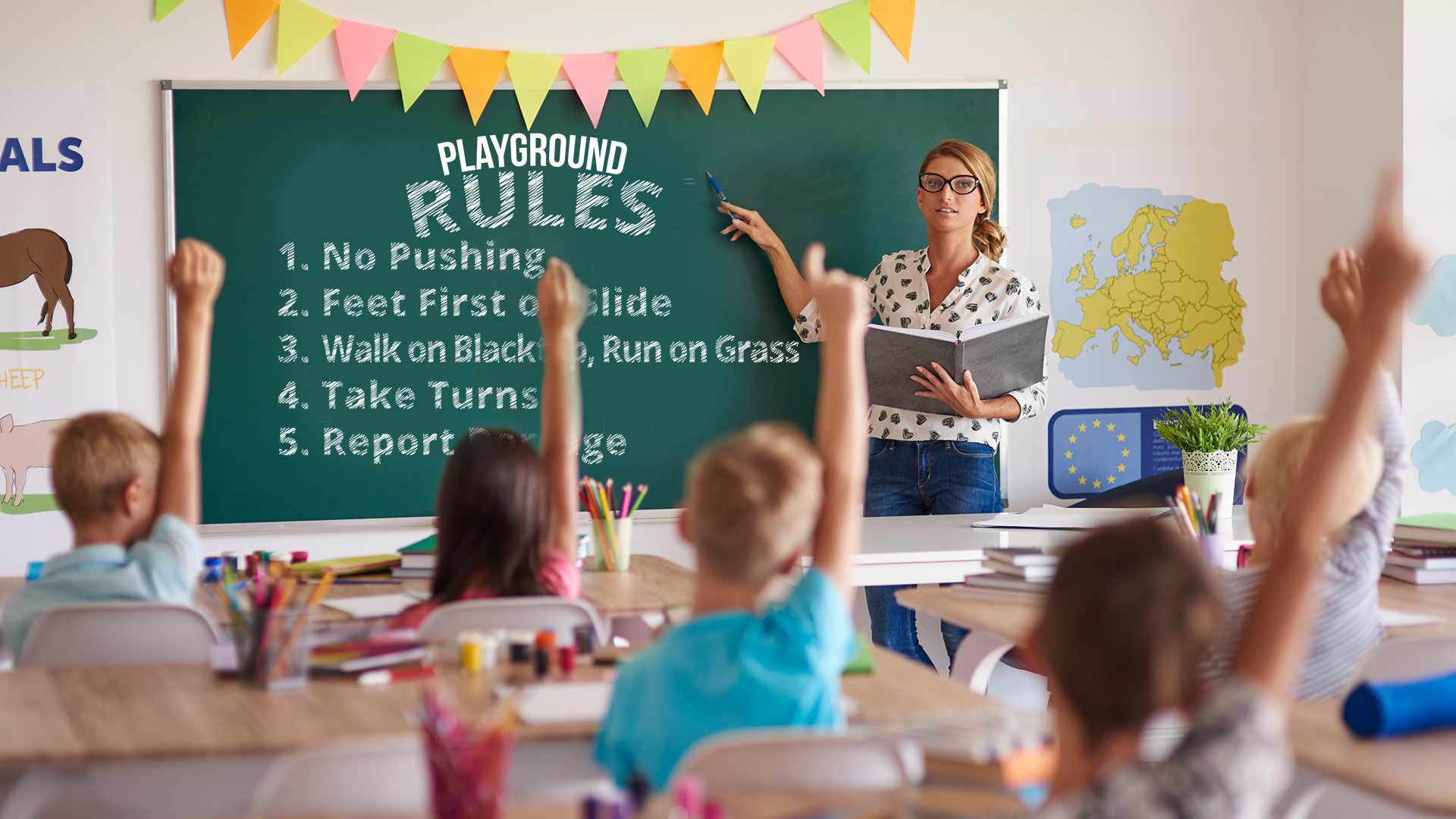
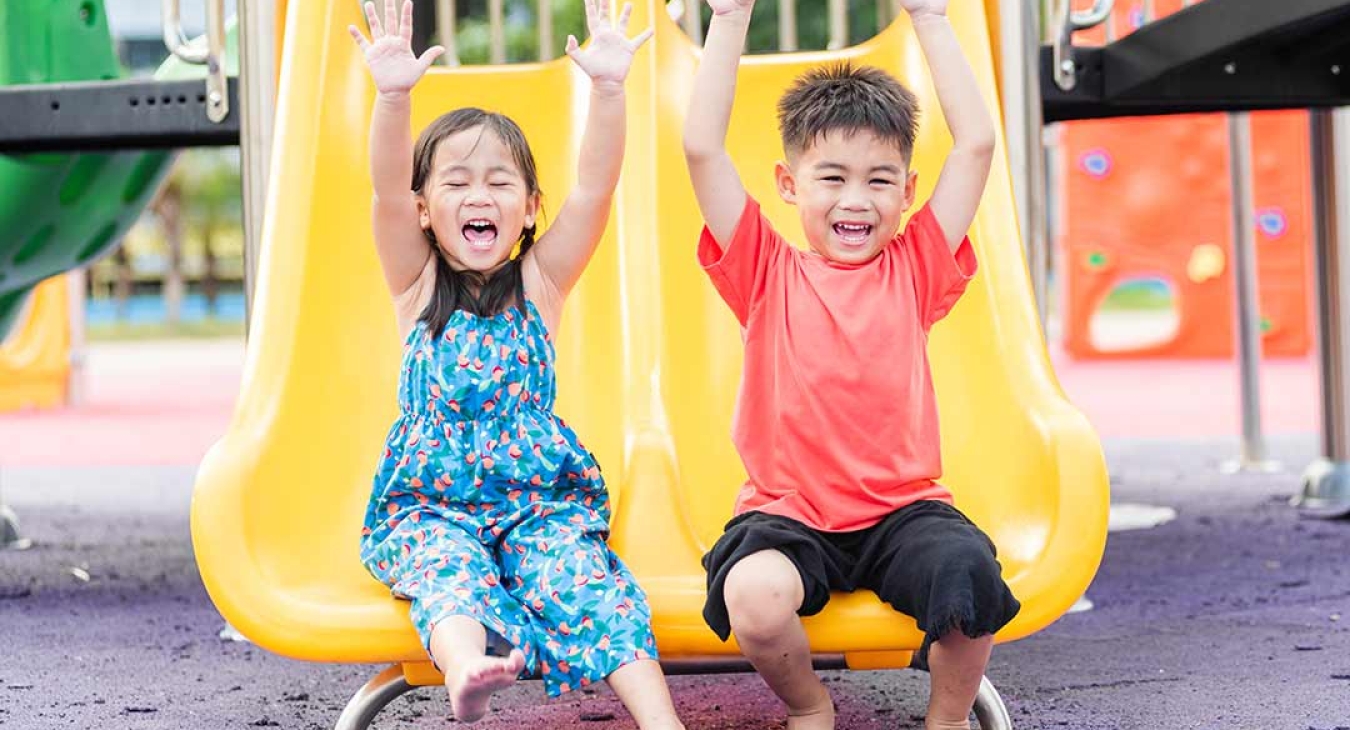
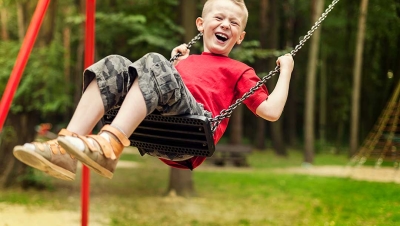
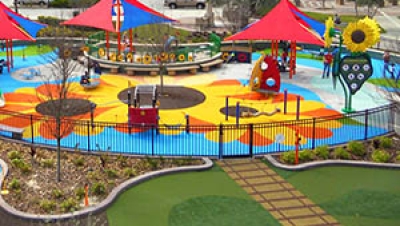
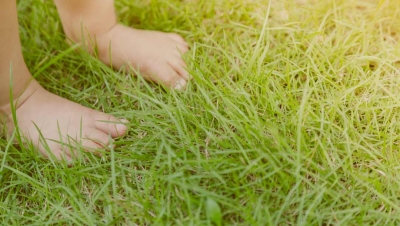

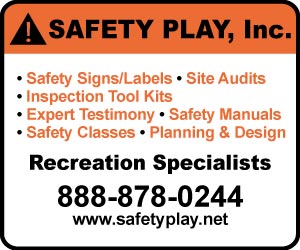
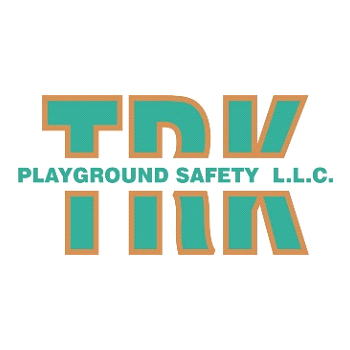

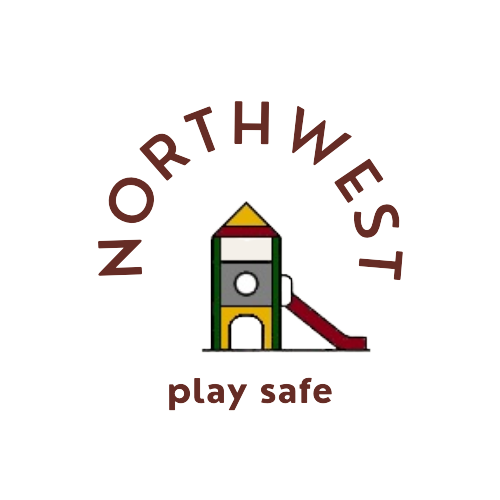


Add new comment